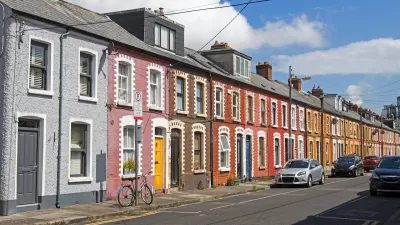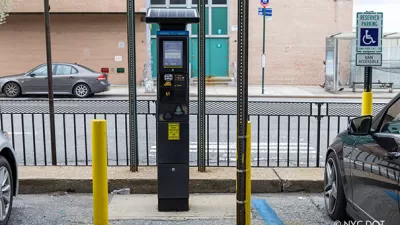Over the next two years, Boston will replace its old parking meters with new ones connected to the internet. With this groundwork in place, pay-by-phone parking is the next step.

It's no secret that there is abundant space for urban parking innovation. Curt Woodward writes, "Researchers from MIT's Senseable City Lab, who have tested parking-spot-finder technology on the school's campus, say the average American spends about 50 hours per year just looking for parking, wasting fuel while increasing air pollution and traffic congestion."
In a step forward for the digital city, smart parking meters will spread across Boston over the next two years. From the article: "Boston already has rolled out a pilot program in the Back Bay neighborhood, called ParkBoston, that lets drivers pay for their metered spots with a smartphone app. San Francisco, Washington, D.C., and Los Angeles also have tested projects that tap into smartphone technology to make parking more convenient [...]"
Multiple start-ups are vying for the private parking market, and several more - like Boston's Haystack - have even tried to sell access to public spots. City officials and entrepreneurs alike seem confident Bostonians won't need those bags of quarters much longer.
FULL STORY: Boston to install “smart” parking meters across city, spreading pay-by-phone options

Study: Maui’s Plan to Convert Vacation Rentals to Long-Term Housing Could Cause Nearly $1 Billion Economic Loss
The plan would reduce visitor accommodation by 25,% resulting in 1,900 jobs lost.

North Texas Transit Leaders Tout Benefits of TOD for Growing Region
At a summit focused on transit-oriented development, policymakers discussed how North Texas’ expanded light rail system can serve as a tool for economic growth.

Why Should We Subsidize Public Transportation?
Many public transit agencies face financial stress due to rising costs, declining fare revenue, and declining subsidies. Transit advocates must provide a strong business case for increasing public transit funding.

How to Make US Trains Faster
Changes to boarding platforms and a switch to electric trains could improve U.S. passenger rail service without the added cost of high-speed rail.

Columbia’s Revitalized ‘Loop’ Is a Hub for Local Entrepreneurs
A focus on small businesses is helping a commercial corridor in Columbia, Missouri thrive.

Invasive Insect Threatens Minnesota’s Ash Forests
The Emerald Ash Borer is a rapidly spreading invasive pest threatening Minnesota’s ash trees, and homeowners are encouraged to plant diverse replacement species, avoid moving ash firewood, and monitor for signs of infestation.
Urban Design for Planners 1: Software Tools
This six-course series explores essential urban design concepts using open source software and equips planners with the tools they need to participate fully in the urban design process.
Planning for Universal Design
Learn the tools for implementing Universal Design in planning regulations.
City of Santa Clarita
Ascent Environmental
Institute for Housing and Urban Development Studies (IHS)
City of Grandview
Harvard GSD Executive Education
Toledo-Lucas County Plan Commissions
Salt Lake City
NYU Wagner Graduate School of Public Service




























